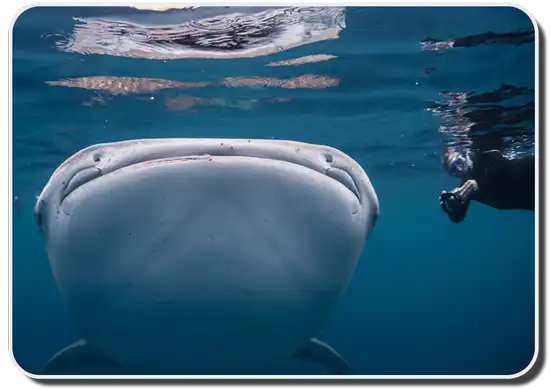There is a lot of misinformation about the sharks of the world. Between the sensationalism of sharks in the media from movies like Jaws and television events like Shark Week, and the long held cultural myths about the nature and uses of sharks, sharks are deeply misunderstood by most people. In fact, most of things people believe about sharks are simply not true.

Furthermore, these myths are incredibly dangerous and have had devastating effects on the population of sharks. So we’ve set out to debunk the ten most common myths about sharks to dispel any misunderstandings:
Myth #1: Sharks have to keep swimming or they die.
Many people believe that if sharks don’t constantly keep swimming they will drown. This myth stems from the true fact that some sharks, known as ram breathers, like the Great White Sharks and Mako Sharks, need to swim to force water across their gills so they can breathe. However, there are several species of shark, such as Nurse Sharks and Bullhead Sharks, that can stay stationary because they have buccal mouth muscles that that can draw in water over their gills. Other species like the Tiger Shark are both ram breathers and have buccal muscles. So this myth depends entirely on the species, though even ram breathers have been known to take a rest now and then.
Myth #2: Sharks have terrible eyesight and are colorblind.
This myth stems from the fact that scientists used to believe that sharks had terrible eyesight. However, after further study, they have found that sharks actually have great eyesight. Shark’s eyes are very similar to humans eyes, as they have cones for detecting color and rods for detecting light. Some species have also developed a tapetum lucidum, which can help them see even better at night. It is estimated that sharks eyes are ten times more sensitive to light than human eyes.
Myth #3: Sharks are stupid and have walnut sized brains.
People tend to assume all animals are stupid, especially animals we consider less than us. However, sharks are incredibly intelligent and their brains match their body size. For example, a Great White Shark’s brain can grow to two feet in diameter. A shark’s brain has millions of neurons and has the capacity for a range of higher functions including social behaviors, curiosity, and problem solving.
Myth #4: Sharks have very sharp teeth.
This myth is the result of not understanding the diversity of shark species. While it’s true most sharks have rows of sharp teeth, there are other sharks like the Horn Shark that has flat rounded molars. Other sharks like filter feeders have tiny teeth that are used to filter the water for plankton. So this myth is only true for some species, not all sharks.
Myth #5: Sharks have to be killed to die.
There are several sharks that live a long time like the Spiny Dogfish that is estimated to live 100 years, however most of the sharks of the world have a lifespan of 20-30 years. This myth comes from the fact that some species of shark, like the Great White Shark, will continue to grow as they get older. This myth may also come from the fact that sharks continuously grow their teeth through their lifetime. However, sharks are not immortal, they can die of old age like any other animal.
Myth #6: A drop of blood in the water will set off a shark feeding frenzy.
While true that sharks have an amazing sense of smell and can detect the odor of blood in small quantities, the presence of blood in the water will not necessarily set off a shark attack, no less a shark feeding frenzy. In fact, sharks do not engage in feeding frenzies. When sharks feed as a group, there is a complex social hierarchy to how they feed. The sharks take turns, feeding quickly, and in order of dominance. So this myth comes from not understanding how sharks feed.
Myth #7: Sharks don’t get cancer.
This myth comes from the fact that certain properties of cartilage may help reduce the growth of cancerous tumors. Since sharks are cartilaginous fish, people believe that they do not get cancer. However, this myth could not be further from the truth. Not only do sharks get cancer, but their cartilage cannot be used as a cure for cancer. This is an extremely dangerous myth because it promotes the slaughter of sharks for their cartilage which has no medicinal benefits against cancer.
Myth #8: Shark fin soup cures illness.
Shark fin soup is important to Chinese medicine. Shark fin soup has been used for thousands of years to treat a range of illnesses from psoriasis to cancer. However, there is no medical evidence to support that shark fin soup has any medicinal purposes. In fact, shark meat can actually be toxic to people because it contains high levels of mercury. The myth of shark fin soup is also incredibly dangerous to the sharks of the world because an estimated 100 million are killed every year to make shark fin soup.
Myth #9: Culling sharks protects people from shark attacks.
Shark culling, or the practice of killing thousands of sharks near populated beaches, does not protect people from shark attacks. In fact, there is no proof that culling sharks in any area reduces shark attacks. Even if there were, there are still many other harmless options like electrical current or alloys that can help keep sharks away from populated beaches without killing them. So culling is a barbaric and unnecessary practice that hasn’t been shown to protect anyone.
Myth #10: Sharks are a threat to people.
Sharks only kill an average of 4 people every year, that’s less than people who die from dog attacks. So the threat the sharks of the world pose to humanity is completely overblown. In fact, not only are sharks not a threat to humanity but they are crucial to the ecosystem of our oceans and our planet. So not only are they not a threat, sharks are actually our friends.
These myths have terrible impacts of shark populations. They breed fear and misunderstanding which often leads to the brutal and unnecessary slaughter of sharks. These myths must be debunked so that we can help protect sharks before they disappear from our planet forever. So make sure the next time you hear something about sharks, you check and make sure it is true!
